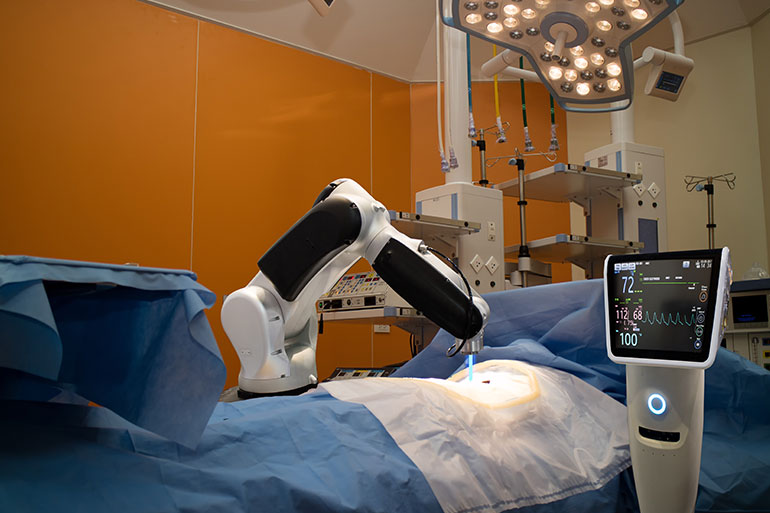
AI’s Leap into Healthcare: Enhancing Diagnosis and TreatmentAI’s Leap into Healthcare: Enhancing Diagnosis and Treatment Artificial intelligence (AI) is rapidly transforming the healthcare industry, bringing unprecedented advancements in diagnosis, treatment, and patient care. Precision Diagnosis AI algorithms can analyze vast amounts of medical data, including patient records, imaging scans, and laboratory results, to identify patterns and anomalies that human clinicians may miss. This enables more precise and early diagnosis of diseases, such as cancer, cardiac issues, and neurodegenerative disorders. Personalized Treatment Plans AI can tailor treatment plans to individual patients’ needs by considering their genetic profile, medical history, and lifestyle factors. By analyzing large databases, AI systems can recommend optimal therapies and dosage adjustments, maximizing treatment effectiveness and minimizing side effects. Virtual Health Assistants AI-powered virtual health assistants can provide patients with round-the-clock support and information. They can answer questions, schedule appointments, and even monitor symptoms remotely. This empowers patients to take an active role in their healthcare and promotes continuity of care. Early Disease Detection AI algorithms can detect diseases at their earliest stages, when intervention is most effective. By analyzing wearable devices, smartphones, and other data sources, AI can identify subtle changes in vital signs, sleep patterns, and activity levels that may indicate an underlying health condition. Improved Patient Outcomes The integration of AI has led to significant improvements in patient outcomes. For instance, AI-assisted cancer screening programs have increased early detection rates, leading to reduced mortality and improved quality of life. AI-powered algorithms have also helped optimize treatment for cardiac diseases, resulting in better patient survival and recovery. Challenges and Future Prospects While AI holds immense potential in healthcare, it also presents challenges. Ensuring data privacy, transparency, and ethical use of AI algorithms is paramount. Future advancements in AI will focus on addressing these challenges, as well as developing AI-driven solutions for personalized medicine, drug discovery, and disease management. Conclusion AI’s leap into healthcare is enhancing diagnosis and treatment, empowering patients, and improving patient outcomes. As AI continues to evolve, it has the potential to revolutionize healthcare and make precision medicine and personalized care a reality. However, careful consideration of ethical and data privacy issues is crucial to ensure the responsible and beneficial deployment of AI in the healthcare sector.
Posted inNews